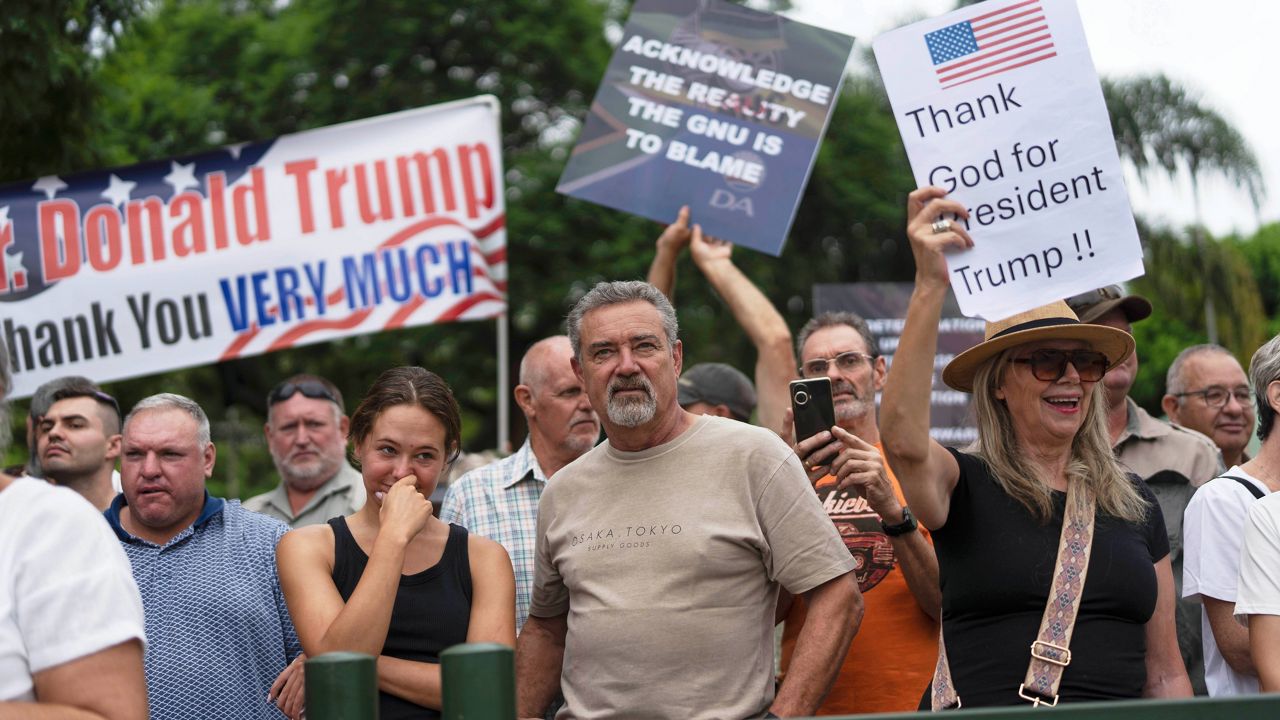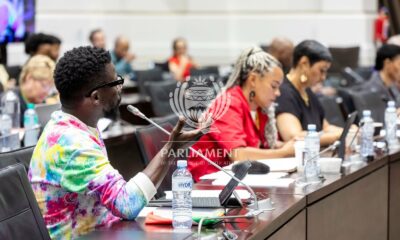411
Tensions Escalate as U.S. Moves to Welcome White South African Refugees

The South African government has strongly condemned a new initiative by the United States to resettle white Afrikaners as refugees, calling the move “politically motivated” and a distortion of the country’s complex social dynamics.
The tensions come as the Trump administration revives a controversial policy to grant humanitarian relief to white South African farmers and Afrikaners, a group it claims faces racial persecution under South Africa’s land reform and economic policies. The announcement has reignited international debate over land ownership, minority rights, and immigration.
Speaking through its Foreign Ministry, the South African government criticized the plan as racially selective and rooted in a misunderstanding of the country’s constitutional democracy. “It is of great concern that the foundational premise of this order lacks factual accuracy and fails to recognize South Africa’s profound and painful history of colonialism and apartheid,” the statement read.
The move follows President Donald Trump’s executive order, which claims that South Africa discriminates against ethnic minorities, particularly Afrikaners, through land seizure policies and limited economic opportunities. The order also cites growing violence and what Trump’s advisor Elon Musk described as “a genocide against the white minority.”
Under the executive directive, 54 white South Africans will reportedly be resettled in the U.S. as refugees in the coming weeks. The plan comes at a time when the U.S. has drastically reduced asylum acceptance from other regions, prompting accusations of racial bias and double standards.
“The South African government blatantly discriminates against ethnic minority Afrikaners,” the White House claimed in a press release, further accusing Pretoria of failing to provide equal opportunities in education, business, and employment.
South African officials have pushed back, stressing that land reform laws are meant to address historical injustices, not target minorities. They also highlighted the irony of the Trump administration’s decision, pointing to the economic status of Afrikaners compared to many other groups seeking asylum globally.
“It’s deeply ironic that the same administration expelling vulnerable asylum seekers from war-torn countries is offering refugee status to a group that, by most global standards, remains economically privileged,” the South African statement read.
Critics of the Trump policy, both in the U.S. and South Africa, say the narrative oversimplifies South Africa’s land reform efforts, painting them as reverse discrimination rather than necessary redress.
University of Stellenbosch professor Mark Swilling noted, “This is a misrepresentation of complex issues for political gain, especially as South Africa prepares to chair the G20 later this year.”
While the South African government has said it won’t prevent the selected Afrikaners from leaving the country, it has requested that the U.S. thoroughly vet the individuals to ensure they are not fleeing due to criminal proceedings.
As the first group of refugees prepares for departure, diplomatic relations between the two nations remain strained. Observers worry the policy could set a dangerous precedent, reviving old Cold War-era dynamics where superpowers use refugee resettlement as a tool of ideological influence.
{Source: Business Insider Africa}
Follow Joburg ETC on Facebook, Twitter , TikTok and Instagram
For more News in Johannesburg, visit joburgetc.com



























